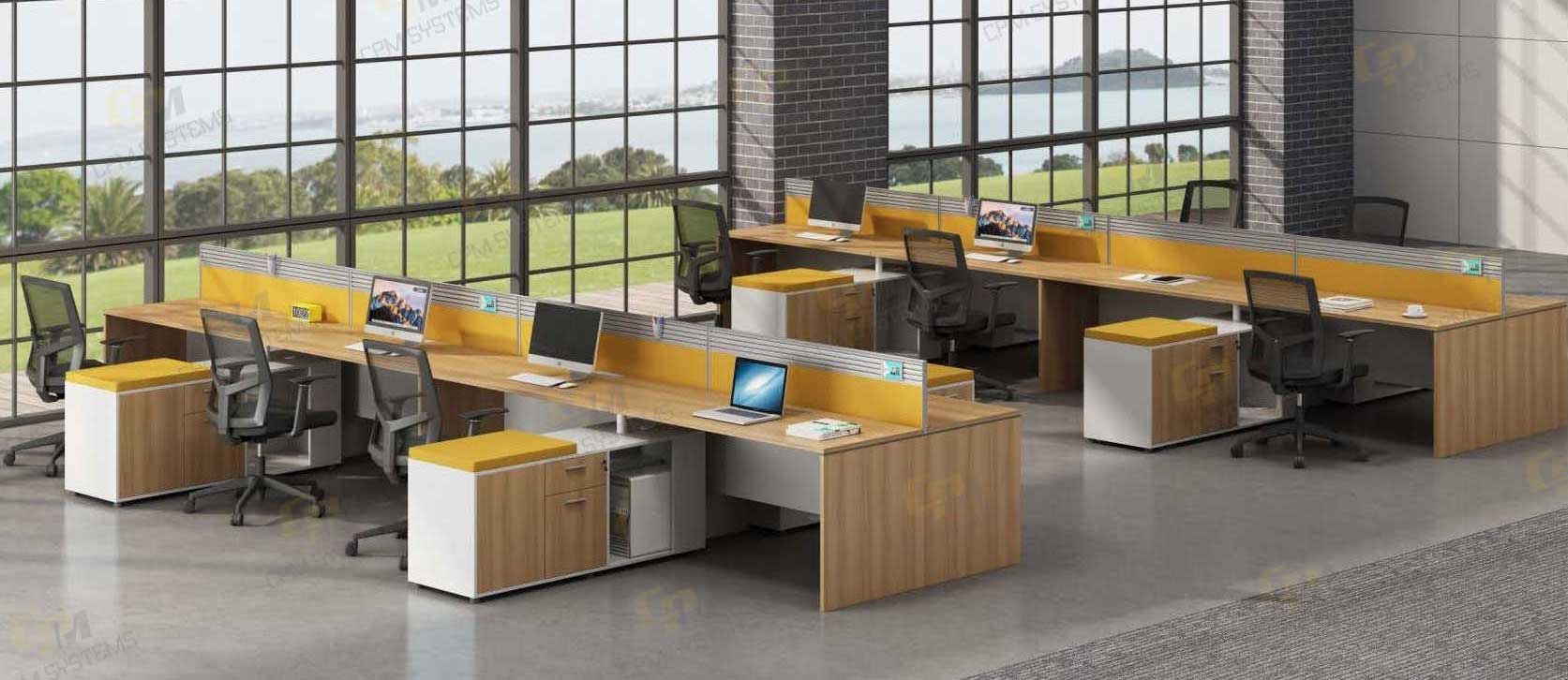
In today’s rapidly changing world, sustainability has become a core value for businesses striving to make a positive impact on the environment. One way companies are embracing eco-friendly practices is by incorporating sustainable office solutions, with modular office furniture leading the way. Modular office furniture not only enhances workplace efficiency and flexibility, but it also plays a significant role in creating an environmentally conscious workspace. In this blog, we’ll explore how modular office furniture supports eco-friendly workplaces and why it’s an ideal choice for organizations looking to reduce their environmental footprint.
1. Resource Efficiency and Reduced Waste
One of the most notable benefits of modular office furniture is its ability to minimize waste. Unlike traditional office furniture that is often bulky and difficult to repurpose, modular furniture is designed to be adaptable and long-lasting. Its modularity allows components to be easily replaced or reconfigured, which means fewer materials are discarded when changes are needed. Additionally, manufacturers of modular furniture often use sustainable materials such as recycled steel, wood, and eco-friendly fabrics, ensuring that the production process itself is more resource-efficient.
2. Durability for Long-Term Use
The durability of modular office furniture makes it a sustainable investment. High-quality materials and thoughtful construction ensure that these furniture pieces last longer, which means fewer replacements and a reduced need for new resources. This long lifespan reduces the overall consumption of raw materials, as companies don’t need to frequently purchase new furniture to replace worn-out items. In this way, modular office furniture helps reduce overall waste and supports a sustainable, circular economy.
3. Minimal Environmental Impact in Manufacturing
Many modular office furniture brands emphasize sustainability in their manufacturing processes. This includes reducing carbon emissions, using energy-efficient production techniques, and sourcing materials responsibly. For example, some manufacturers prioritize the use of low-VOC (volatile organic compound) materials that minimize air pollution and contribute to healthier indoor air quality. By choosing modular office furniture, businesses are not only supporting sustainable manufacturing practices but also contributing to a healthier and safer workplace for their employees.
4. Reusability and Adaptability
Modular furniture’s design allows it to be easily disassembled and reused, which is a key feature for companies aiming to reduce waste. If a company decides to relocate or undergo an office redesign, modular furniture systems can be adapted to new spaces without needing to discard existing pieces. This flexibility makes modular furniture an ideal choice for businesses that may be experiencing rapid growth, downsizing, or reconfiguring their office layout. Rather than purchasing new furniture every time, organizations can simply reassemble or repurpose existing pieces, significantly reducing their environmental impact.
5. Support for Green Certifications
For businesses aiming to achieve green certifications such as LEED (Leadership in Energy and Environmental Design), modular office furniture can be an integral part of their sustainability efforts. By choosing eco-friendly furniture, businesses can earn valuable points toward these certifications. Modular furniture brands that emphasize sustainability are typically more aligned with the goals of green building initiatives, providing products that meet the highest environmental standards. This makes modular office furniture a smart choice for companies that want to improve their green credentials and contribute to environmental conservation.
6. Energy Efficiency in Office Design
Sustainable office design goes beyond just the furniture; it includes optimizing the office space to reduce energy consumption. Modular office furniture is perfect for creating flexible and efficient layouts that promote natural lighting and optimize airflow, reducing the need for artificial lighting and air conditioning. By creating well-planned, adaptable workspaces, businesses can lower their energy consumption, further supporting their sustainability efforts. This design efficiency also contributes to a healthier work environment, improving overall employee well-being and productivity.
7. End-of-Life Recycling and Disposal
When the time comes to dispose of modular office furniture, it’s typically easier to recycle or repurpose due to its modular components. Since modular furniture is made up of individual parts that can be separated, businesses can often recycle or resell the parts that are still in good condition. Some manufacturers also offer take-back programs, where used office furniture is returned and either recycled or refurbished for further use. This process helps close the loop and reduce the amount of office furniture waste that ends up in landfills.
8. Customization for Eco-Friendly Materials
Another key benefit of Modular Office Furniture Manufacturers is its customization options, which allow businesses to choose eco-friendly materials that align with their sustainability goals. Many manufacturers offer options for low-impact materials such as bamboo, reclaimed wood, and recycled metal. Additionally, some modular furniture brands provide fabric options made from organic cotton, wool, or polyester derived from recycled plastic bottles. By choosing these materials, companies can reduce their environmental footprint while still creating stylish, functional workspaces.
Embracing Sustainability in the Workplace
As businesses continue to prioritize sustainability, modular office furniture presents a compelling solution for creating eco-friendly workplaces. Its resource efficiency, durability, adaptability, and minimal environmental impact make it an ideal choice for companies looking to reduce their carbon footprint and improve their overall environmental performance. By investing in modular furniture, businesses not only contribute to a more sustainable world but also create dynamic, flexible, and efficient workspaces that benefit both the environment and the employees.





Leave a Reply